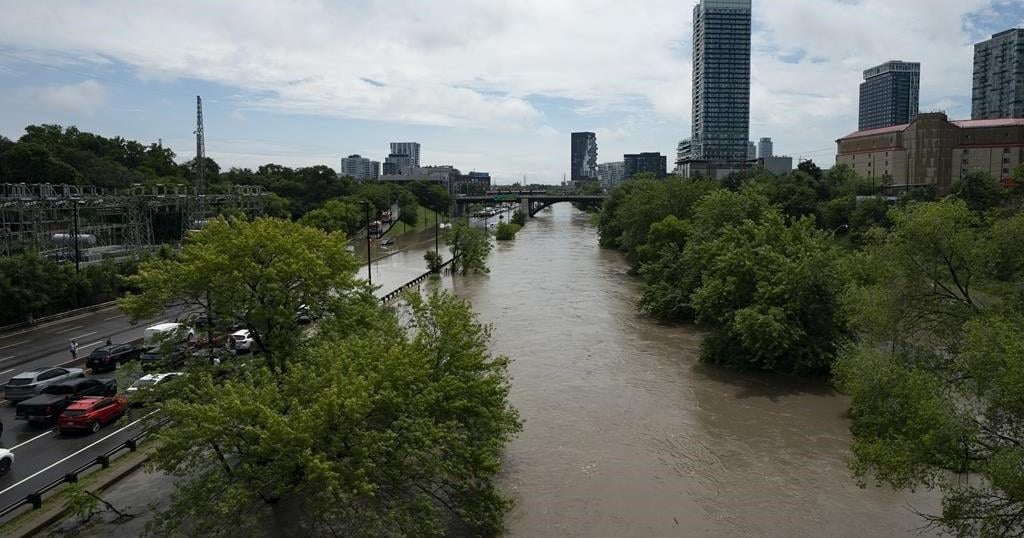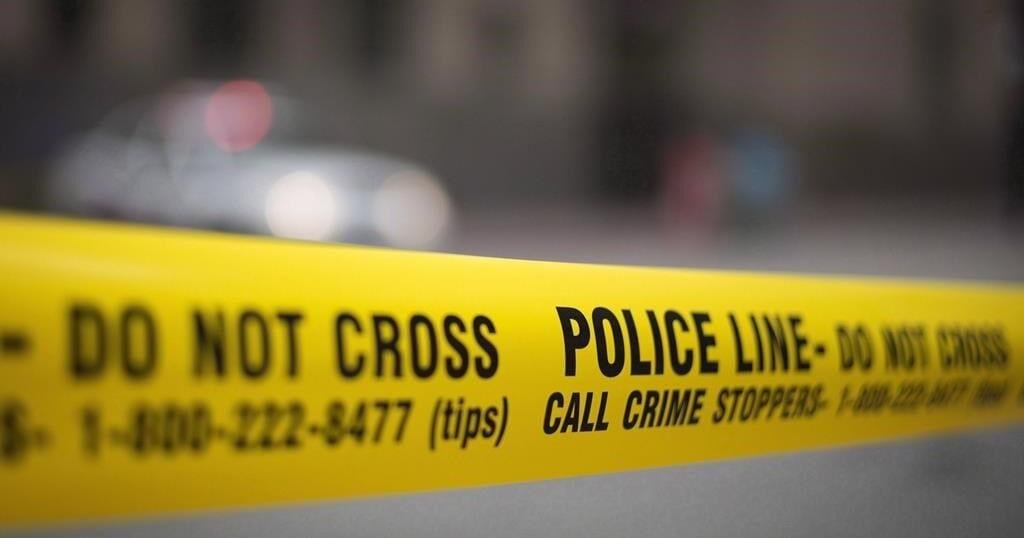OTTAWA – A new poll suggests more Canadians are feeling the direct impacts of extreme weather, but that has not changed overall opinions about climate change.
The results from a recent Leger poll suggest more than one in three Canadians have been touched directly by extreme weather such as forest fires, heat waves, floods or tornadoes.
When Leger asked the same question in June 2023, around one in four Canadians indicated they had been impacted by extreme weather.
The previous poll was taken as the record-breaking 2023 wildfire season was just getting underway.
The latest poll, which was conducted online Aug. 16-18, comes midway through another above-average wildfire season, and after news that the beloved Jasper National Park was partially destroyed by fire and as residents of the country’s biggest city are living through the rainiest summer on record.
A major rainstorm in Toronto in mid-July caused flash flooding and nearly $1 billion in insured damages, while another record-setting rainfall last weekend dropped more than a month’s worth of rain on the city in just a few hours.
Some places in Atlantic Canada have also been dealing with flooding in July from the remnants of Hurricane Beryl. Across the country, a heat wave descended on large parts of British Columbia and Alberta in June and July and drought in both provinces has raised the fire risk substantially.
The number of people touched by extreme weather jumped significantly in every province but Manitoba and Saskatchewan, which stayed the same at 21 per cent.
Alberta saw the biggest increase, with 43 per cent reporting they’ve seen the effects this year, up from 22 per cent in 2023. In Quebec the number rose to 41 per cent from 25 per cent, while in Ontario it was up 13 percentage points at 31 per cent.
Almost half of those polled in Atlantic Canada say they have been touched by extreme weather, up from less than one-third a year ago.
More than seven in 10 people polled agreed we’re seeing more forest fires than we did five years ago, while two in three said they have felt more extreme heat. Three in five also said there are more poor air quality days and more wild temperature fluctuations in a season.
More than half of respondents say there are more floods and heavy rainstorms, as well as a delayed onset to winter.
Despite all that, people who took the survey were less likely to be concerned about climate change now than in 2023.
More than a year ago, 67 per cent of those polled indicated that the changing climate was worrying, compared with 63 per cent this year.
The poll also shows virtually no movement on whether people believe in climate change: 13 per cent of those who took the survey say climate change does not exist, compared to 12 per cent in 2023.
About half of respondents believe there is still time to reverse climate change, while just over one-third said it’s too late to turn back the clock.
The poll cannot be assigned a margin of error because online polls are not considered truly random samples.
This report by The Canadian Press was first published Aug. 21, 2024.

























